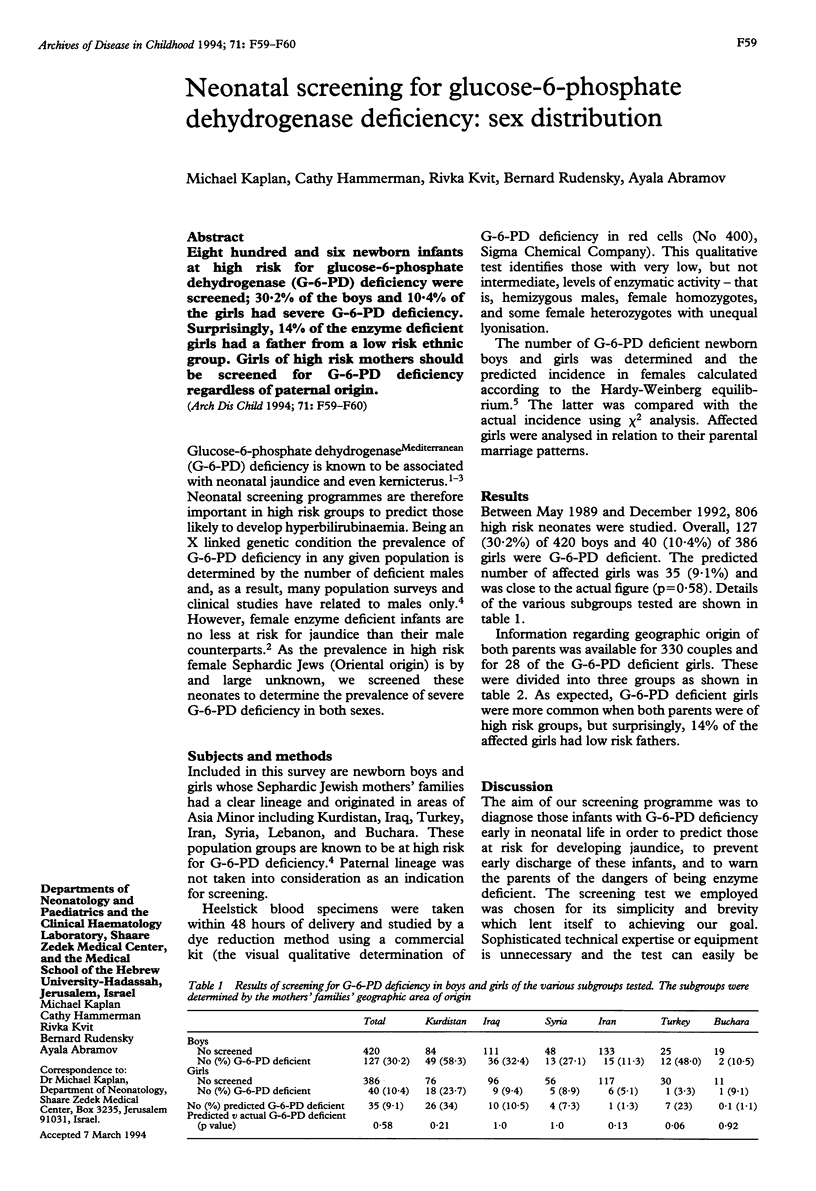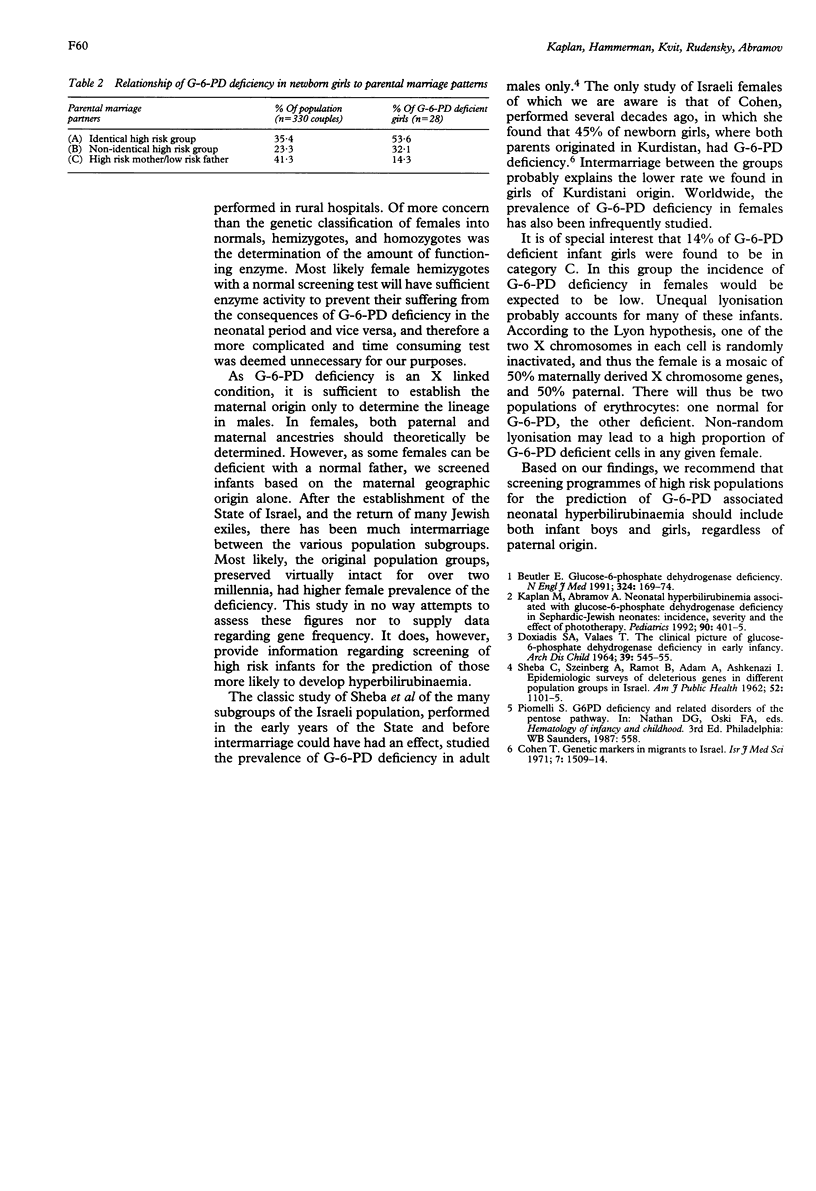Abstract
Eight hundred and six newborn infants at high risk for glucose-6-phosphate dehydrogenase (G-6-PD) deficiency were screened; 30.2% of the boys and 10.4% of the girls had severe G-6-PD deficiency. Surprisingly, 14% of the enzyme deficient girls had a father from a low risk ethnic group. Girls of high risk mothers should be screened for G-6-PD deficiency regardless of paternal origin.
Full text
PDF

Selected References
These references are in PubMed. This may not be the complete list of references from this article.
- Beutler E. Glucose-6-phosphate dehydrogenase deficiency. N Engl J Med. 1991 Jan 17;324(3):169–174. doi: 10.1056/NEJM199101173240306. [DOI] [PubMed] [Google Scholar]
- Cohen T. Genetic markers in migrants to Israel. Isr J Med Sci. 1971 Dec;7(12):1509–1514. [PubMed] [Google Scholar]
- DOXIADIS S. A., VALAES T. THE CLINICAL PICTURE OF GLUCOSE 6-PHOSPHATE DEHYDROGENASE DEFICIENCY IN EARLY INFANCY. Arch Dis Child. 1964 Dec;39:545–553. doi: 10.1136/adc.39.208.545. [DOI] [PMC free article] [PubMed] [Google Scholar]
- Kaplan M., Abramov A. Neonatal hyperbilirubinemia associated with glucose-6-phosphate dehydrogenase deficiency in Sephardic-Jewish neonates: incidence, severity, and the effect of phototherapy. Pediatrics. 1992 Sep;90(3):401–405. [PubMed] [Google Scholar]
- SHEBA C., SZEINBERG A., RAMOT B., ADAM A., ASHKENAZI I. Epidemiologic surveys of deleterious genes in different population groups in Israel. Am J Public Health Nations Health. 1962 Jul;52:1101–1106. doi: 10.2105/ajph.52.7.1101. [DOI] [PMC free article] [PubMed] [Google Scholar]


